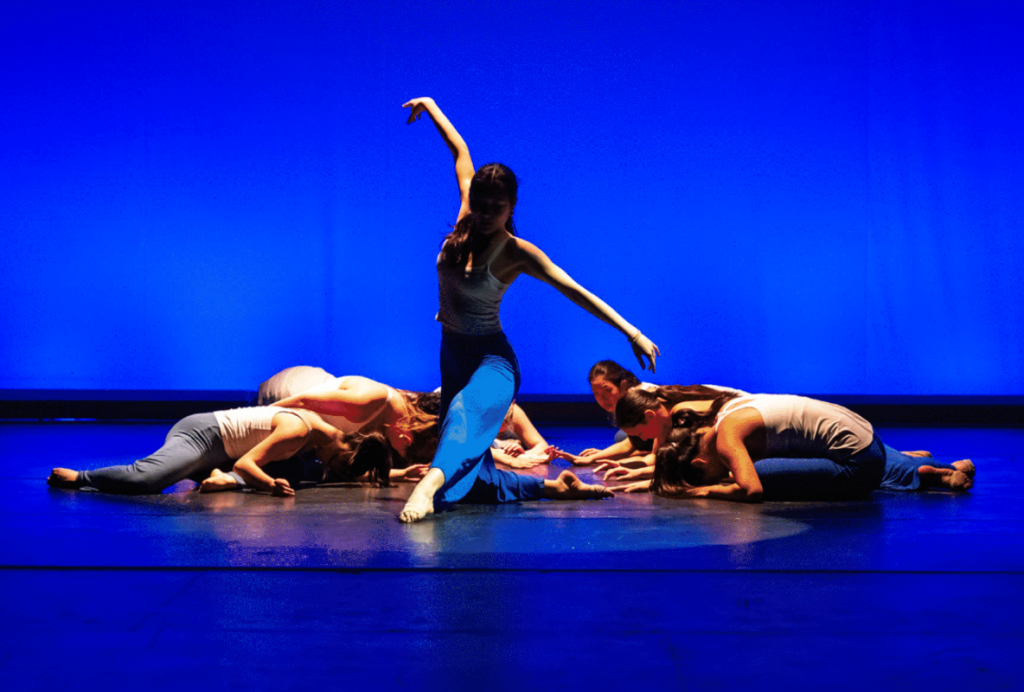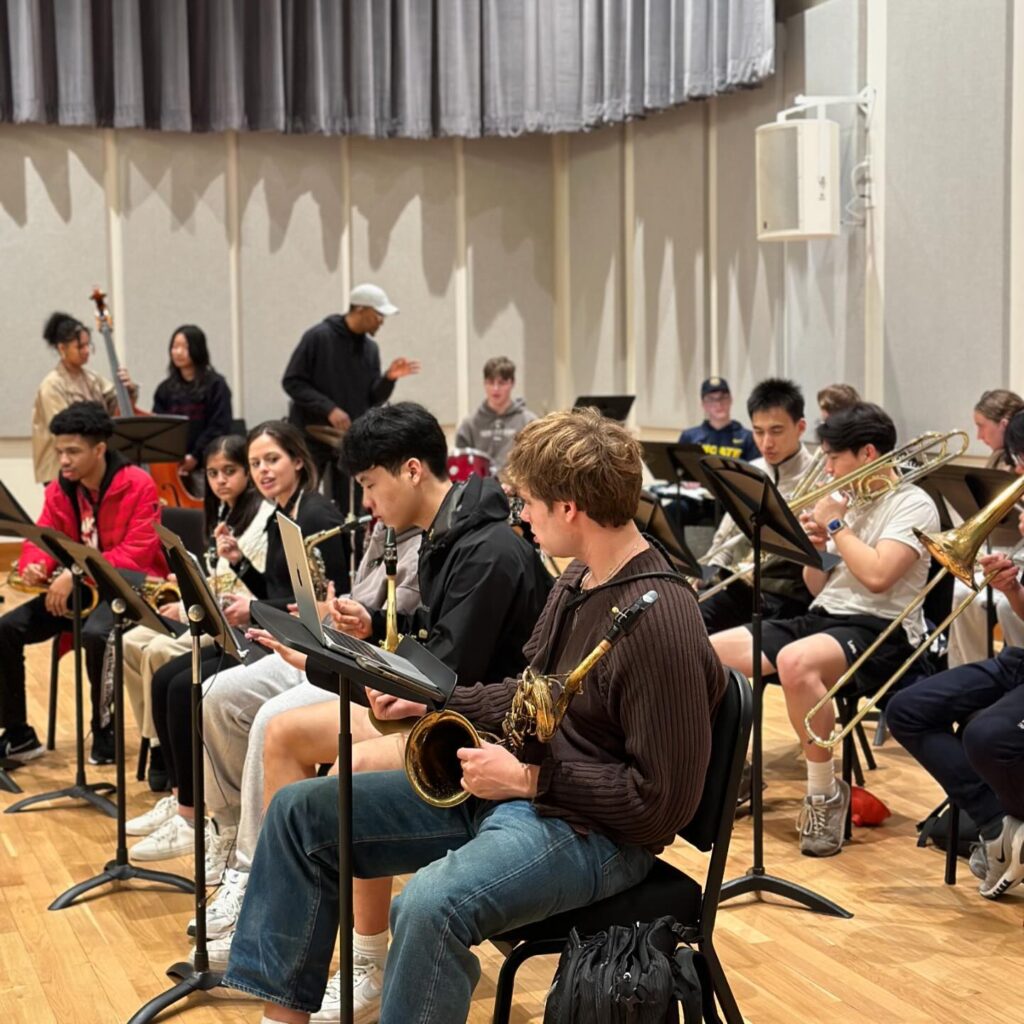
The cast of Fringe sets up props on stage during the tech rehearsal preceding the opening show. The show itself, entirely student- written, directed, and performed, was a success among audience members in all three showings.f
There is something to be said about a production run entirely by students; Fringe is distinct from other Choate productions in that it is focuses on pieces written, filmed, directed, and performed by students. An annual tradition at Choate for over twenty years, The Fringe Festival allows kids to take full control, to explore their creative abilities and watch as their ideas unfold in the intimate setting of the Gelb Theater.
I can still remember the first Fringe Festival I attended. It was sophomore year, and as someone who had never truly experienced any form of theater outside of lofty musicals on Broadway or full-scale school plays, I was captivated by intimate vibrancy that was the embodiment of Fringe. Fringe immediately gave the audience the impression that it was more than just a group of performers: the actors there were family. The electricity in the scenes was evidence enough that the connections made between the actors were invaluable.
As a senior, I finally decided to take part in the festival. It was the beginning of my last winter at Choate, and I felt the need to do something different. As much as I enjoyed my afternoon “sport” that typically consisted of Fitness, I wanted to do something different during my last year as a Choate student. I pride myself on the fact that I am giving back to my community via the performing arts and Fringe specifically. Fringe was a way in which I could give more to the arts community: more than writing weekly articles, and more than attending shows or recitals. After two years of writing about Fringe, I realized that it was time to be in Fringe.
The four directors, Asher Zelson ’17, Max Fine ’17, Austen Rogers ’17, and Ben Wendel ’17 were all passionate and understanding — each in his or her own way. I was lucky enough to have been in three of the four plays, and it was fascinating to see the different styles in which my directors approached their pieces. Zelson’s quiet patience and request for Boston accents, coupled with his willingness to let his actors craft their own characters helped Jack Hodgson’s ’17 play based around petty theft come to life. Fine’s interpretation of Mattie Drucker’s ’17 comedic middle school production allowed for the entire cast of Fringe to come together to create one completed piece — and I believe that Fine’s production (and his all cast field trip to Mr. D’s) was pivotal in making the Fringe family as close-knit as it is. The plays themselves too encouraged a sense of unity that made the Fringe experience memorable.
Wendel’s take on Nell Shaper’s ’17 play involved heavy tech and many, many, lines. During this process, I saw a side of Wendel that I wasn’t familiar with from last year’s Fringe Festival. A raw and vibrant urgency made an already big piece — one about a group of ghost hunting friends — even louder than it originally was. From his use of a blood stained dress, to putting Serena Levin ’20 in a coffin, to using strobe lights in order to create a surreal ambiance, Wendel’s extreme attention to detail was the reason that his play was the finale of the show. Although I was not in Austen Rogers’s ’18 play, I do know that it was a fan favorite. Elena Levin’s ’17 more-than-relatable commentary on Choate’s pervasive hook-up culture, paired with first-time actors Nicole Sellew ’17, Andrew Garver ’17, and Kathryn Phillips’s ’20 gripping performance set this three person play apart, and even from backstage, I could hear the bellows of Choate students and faculty alike.
Max Patel’s ’19 love song had many cast members pressing our ears against the doors backstage. Garver and Lucianne Manigbas’s ’17 song had a similar effect. Lily Ball’s ’20 trenchant dramatic monologue about drug abuse numbed the audience, and Jerri Norman’s ’17 slam poem that stemmed from a place close to her heart — one about the black experience — left many teary-eyed. Amir Idris’s ’17 rap likewise received a round of applause.
This experience has been nothing short of remarkable. It allowed me to discover myself in different forms of art that were previously unknown to me. The role reversal of being an actor rather than an audience member was deeply gratifying. The Fringe family consisted of people from various pockets of the Choate community — people who I would otherwise not have known, much less form meaningful connections with. It made this past term one of the best ones I’ve had at Choate.
To the entire welcoming cast of Fringe and to the extraordinary Ms. Doak and her leadership: thank you for making this experience unforgettable for everyone involved. This will doubtless remain one of my most treasured memories during my four years at Choate Rosemary Hall.



